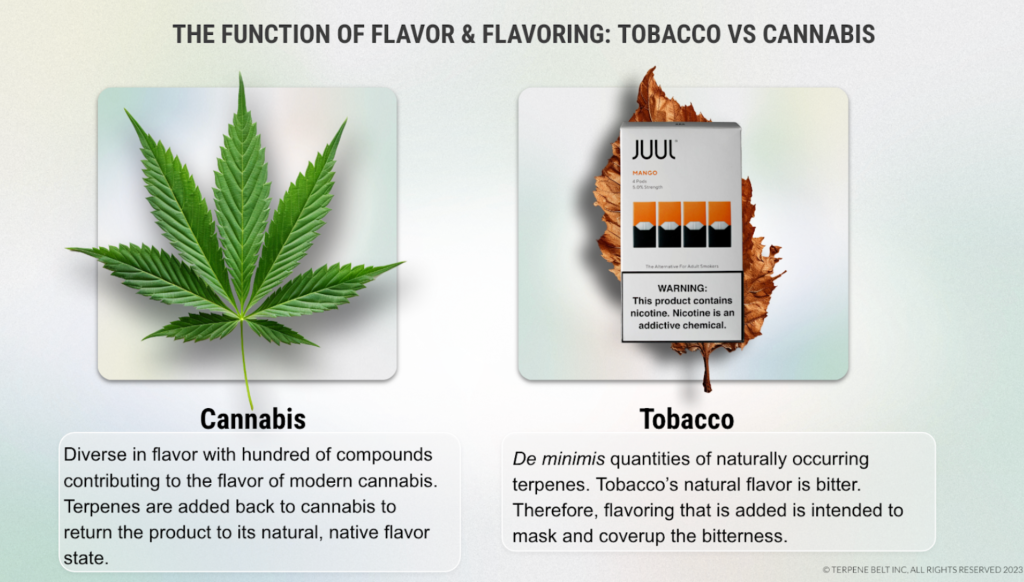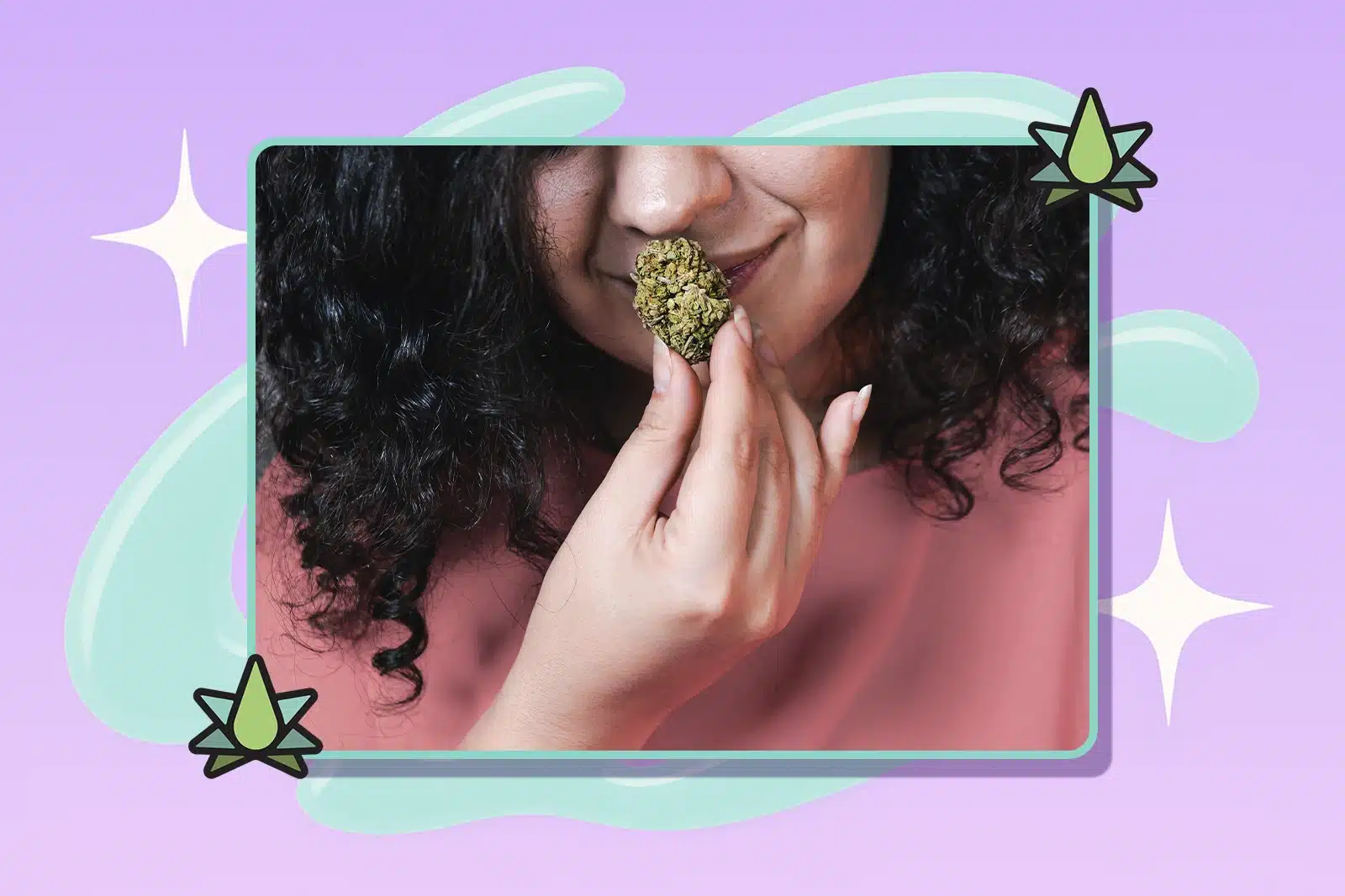Florida’s Flavor Ban: The Dangers of Conflating Hemp with Tobacco
In an effort to mitigate the attraction of hemp-inhalable cannabinoid products to young people, the Florida legislature has introduced language in SB1698 | HB1613 to prohibit the “addition of any flavor in hemp extract products intended for inhalation.” This flavor ban, categorized as appealing to children, has the potential to serve as a perilous precedent that can catalyze a nationwide movement. Such a shift in regulation could have far-reaching consequences, potentially crossing over from hemp to regulated (medical and adult use) marijuana regulations and bleeding from Florida into other states looking to regulate cannabinoids.
Our call to action? It’s time for sensible flavor regulation. This includes decoupling native cannabis flavor from artificial non-cannabis flavor that’s used in advertising and marketing to attract youth, as witnessed in the tobacco industry.
Pamela Epstein, Chief Legal and Regulatory Officer of Terpene Belt Farms, is taking a proactive stance, emphasizing the importance of the industry taking control of the narrative around flavoring in inhalable cannabinoid products.
“We must tackle this issue proactively and stand together as an united cannabinoid industry. It’s evident that consumers universally desire a flavorful vape experience, one that evokes the essence of smoking flower. Failing to address this demand opens the door to the illicit market, allowing bad actors — the catalyst for this language — to thrive unchecked, selling to anyone regardless of age or safety.”
A Misunderstanding Around the Role of Flavor in Hemp Inhalable Cannabinoid Products
The Florida flavor ban is a symptom of a larger issue: inhalable hemp products mistakenly being placed in the same bucket as tobacco/nicotine vapes. Flavorings used in nicotine/tobacco vapes intend to mask their bitter, unappealing flavor. When flavor is added to hemp or marijuana vapes it reunites the sensory and aromatic experience true to the flower.
Take distillate for example. As a result of most manufacturing processes, cannabinoid distillates alone are generally odorless, tasteless and colorless – devoid of any native cannabis flavor. Adding flavor (i.e., adding terpenes and other flavor compounds) contributes to aroma and taste, restores the entourage effect, and ensures that products taste, smell and feel the way consumers expect.
Unintended Consequences
Any expansive flavor ban will result in unintended consequences that will negatively affect the industry at large and consumers
- Restrictions on native flavoring ingredients: Native Cannabis sativa L terpenes are a source to source ingredient and will face prohibition. This is a classic example of throwing the baby out with the bathwater.
- Elevating illicit markets: Products devoid of flavor or desirable effects will drive consumers to purchase from the illicit market.
- Economic issues: Increased raw material costs for operators result in increased costs for consumers. Additionally, bans are costly and impractical to enforce.
- Bringing down other cannabis sectors: Restrictions in the hemp space have the potential to creep into medical and adult use cannabis markets negatively affecting the range of products available directly contributing to the illicit marketplace that exists without regulations or restrictions.
Banding Together to Preserve the Integrity of the Cannabis Industry
By advocating for responsible and sensible flavor regulations, the holistic cannabinoid sector can evolve in a way that honors the plant’s heritage, respects consumer preferences, and aligns with public health objectives.
According to Epstein, “This is a pivotal moment for both the cannabis and hemp industries. Terpene Belt, as a leading provider of flavor, is uniquely poised to grasp the significance of an issue that impacts the entire cannabinoid sector. I see Florida’s situation akin to the initial flavor ban for tobacco in San Francisco — a decision that swiftly gained momentum. We aim to proactively address this issue and prevent its spread.”
A proactive, united, industry approach is crucial to guide future regulations in the cannabis space.



